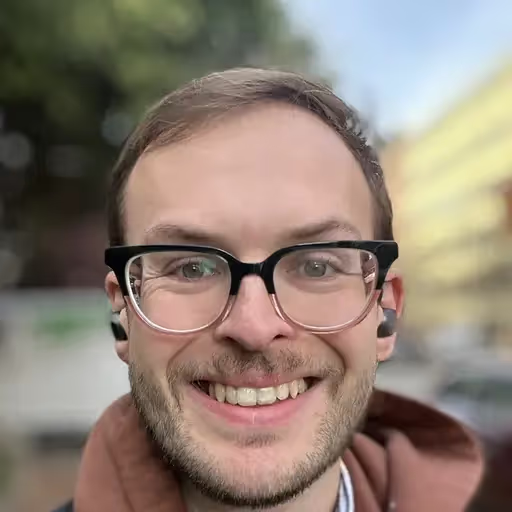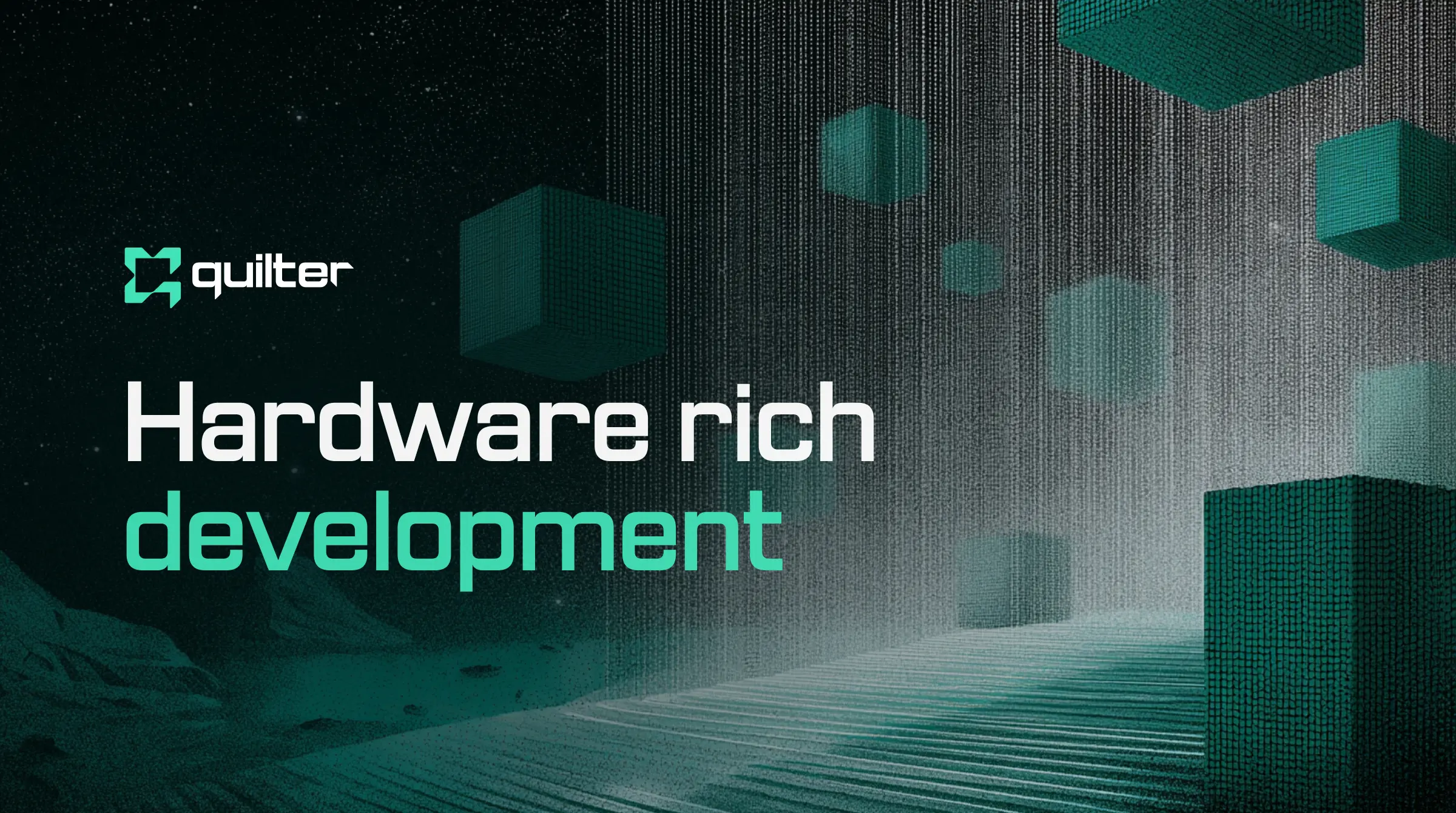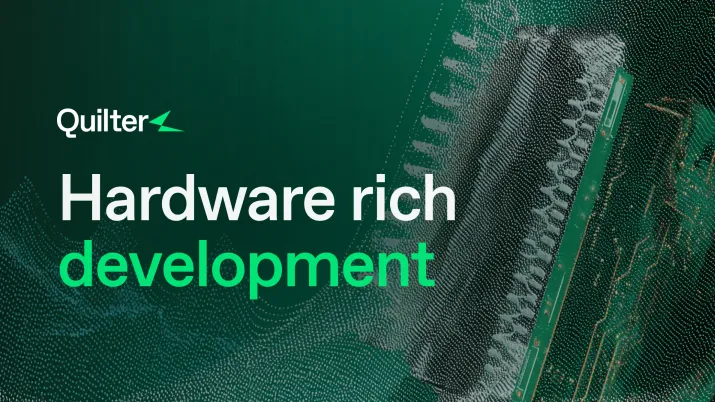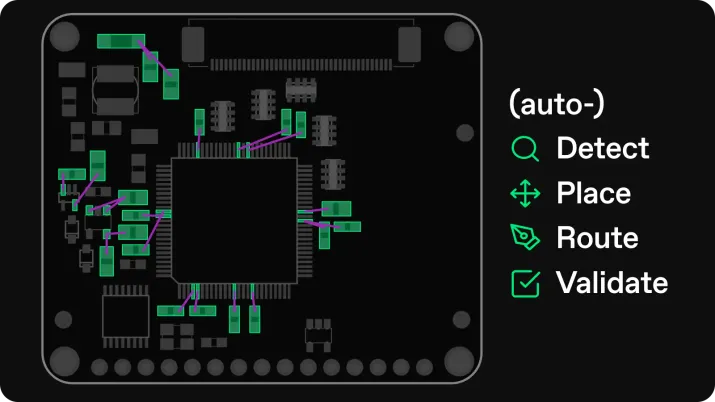Every engineer has a pivot point—the moment they realize the craft is bigger than the tools they thought they’d wield. For Ambrus Csaszar, that moment came when he walked into a professor’s office, eager to contribute to the DARPA Grand Challenge, only to be told he could help with welding. What might have discouraged someone else instead became a spark that redirected his career from mechanical gears to the abstractions of code.
Today, after nearly two decades in software, Ambrus’s career bridges startups, Big Tech, and back again. His path illustrates a simple lesson: the heart of engineering is not what you start with, but what you are willing to learn.
From Physics to Software
“I studied mechanical engineering. And the reason why I studied mechanical engineering was in high school I was pretty good at Newtonian physics… So I declared as EE and then I was like, no, this is stupid. Obviously it’s gotta be mechanical engineering because that’s what I’m reasonably good at.”
The story could have ended there, with Ambrus designing gear trains and calculating torque. But engineering careers are rarely so linear. His ambition to enter robotics pushed him to look beyond the comfort zone of mechanical systems.
“I went to the professor leading [the DARPA Grand Challenge] team and I was like, hey, I’m a freshman, I’m ready to learn… He’s like, maybe you can help us weld. And I was like, I don’t know that you heard me… So that’s when I knew I was going to have to learn to code.”
What many see as rejection, Ambrus reframed as opportunity. Welding wasn’t his path; algorithms were. By the end of college, the transition was complete.
“By the end of my four years in college, I was much better at software than I was at the mechanical stuff.”
His story highlights a recurring truth in technology: the willingness to shift domains is often more valuable than early expertise.
Choosing Leaders and Teams
Technical challenges drew Ambrus into computing, but leadership and culture keep him rooted in a company. At Quilter, it wasn’t just the promise of computational geometry and high-performance computing that pulled him in. It was the leadership of Sergiy.
“Sergiy is the reason I came to Quilter, and he’s one of the major reasons I want to stay… It’s so important to have a leader who values building a compassionate team that wants to work together.”
Leadership, for Ambrus, is not just about vision statements or technical brilliance. It’s about compassion paired with rigor—the ability to move fluidly from high-level strategy to low-level detail.
“I’m just endlessly impressed with Sergiy’s technical knowledge. Ability to cut to the chase. Ability to understand what’s going on at all levels—including the business side and all the way down to the nuts and bolts of what I’m working on.”
This duality—human empathy and technical depth—is rare, and it sets the tone for the kind of company Ambrus wants to help build.
Lessons from Google and Waymo
Engineers often learn as much from environments as from projects. For Ambrus, Google was a revelation in organizational scale and openness.
“When I joined Google, it had many tens of thousands of employees. When I left it was over 100,000. But what they managed to do… I could look up and message literally anybody at the company and they would respond. That was so unique.”
In that sprawling complexity, Ambrus found something counterintuitive: the bigger the system, the more deliberate openness mattered. Access to people and code across boundaries created collaboration at scale.
“I would hope that we at a much, much smaller size are able to maintain those sorts of relationships where anybody can talk to anybody else, where we’re all helping each other out.”
At Quilter, the lesson translates to culture: don’t let size dictate silos. Maintain a fabric of openness before the weight of growth makes it harder to sew.
On Startup Culture
Ambrus is candid about his distaste for empty hype.
“A lot of startup culture is like chest thumping—‘we’re going to change the world, we’re going to disrupt this industry.’ And I hate that shit. Like, put your damn money where your mouth is. Make it work first and make it good.”
This is not cynicism, but discipline. For him, credibility comes not from slogans but from shipping something real.
“I’m glad that we have that value of wanting to build a thing that’s truly useful and see where it takes us.”
His perspective is a counterweight in a landscape that prizes velocity over substance. The disruption worth striving for is usefulness that endures.
Looking Ahead at Quilter
Having sprinted toward a major release, Ambrus now looks forward to a slower, steadier cadence—one where sustainability and depth can take root.
“What I’m looking forward to is having the team’s focus spread out a little bit… to make our tooling better, our core data structures better, and take stock of customer requests in a way that is maintainable and simple.”
And like any seasoned engineer, he sees organizational clarity as a multiplier.
“I hope we’re able to hire a really good VP of Engineering. I think anywhere where we can get a little more organization to grease the wheels and get things moving more smoothly is going to be amazing.”
Progress is not only technical; it’s cultural and structural. Quilter’s future depends on all three.
Outside the Office
Even engineers obsessed with code need to ground themselves in the tangible. For Ambrus, that often meant mountains, bikes, and trucks.
“Polar opposites, I would say… I’ve historically done a lot of cycling, mountain biking and road biking… I like skiing and snowboarding, ice skating, swimming… In the past year I’ve been doing a ton of four wheeling. I work a lot on my truck.”
Recently, he traded Boulder’s trails for New York’s density—a different kind of terrain, but one equally full of challenge and adaptation.
When asked about comfort food, his answers reflect both tradition and simplicity.
“Thanksgiving dinner. I love turkey with cranberry… Especially as an adult, Thanksgiving is definitely my favorite holiday.”
“If I had to pick a comfort food, pho would be it. Or a large iced latte. That or pho.”
Here, too, Ambrus balances between roots and reinvention: the ritual of tradition and the everyday joy of a steaming bowl of pho.
Motto
When asked for a personal dogma, his answer was as sharp as his career trajectory.
“Get it right.”
It’s a phrase that could hang above a drafting table or a terminal window, equally at home in mechanical engineering or high-performance computing. For Ambrus, it is not about perfection—it is about integrity in the work, respect for the team, and care for the craft.
















